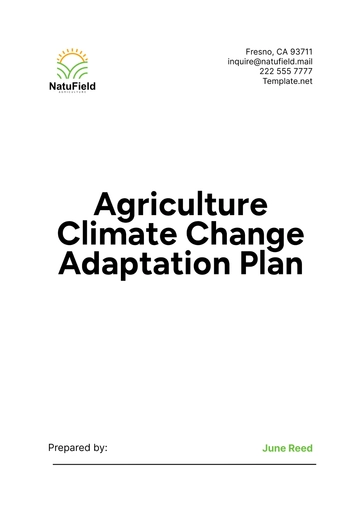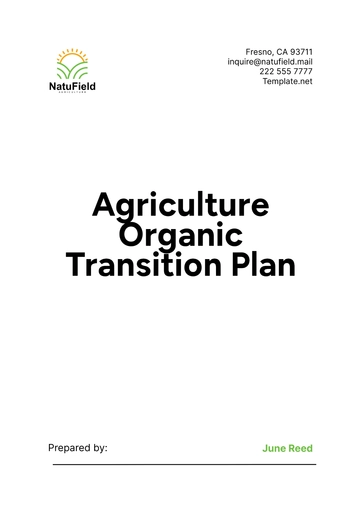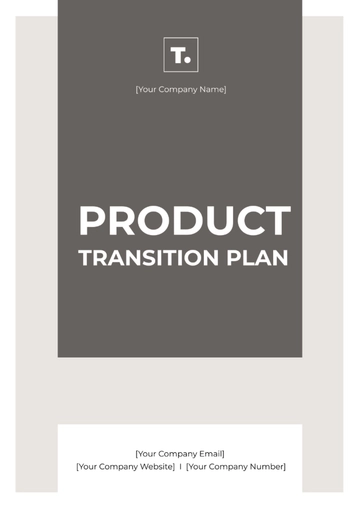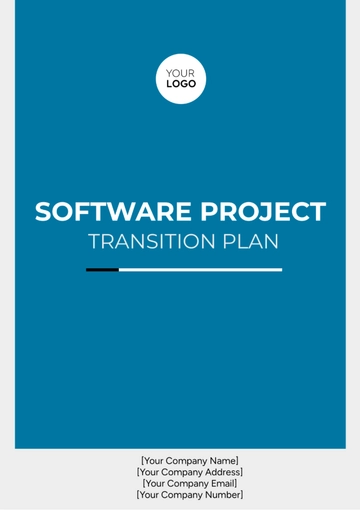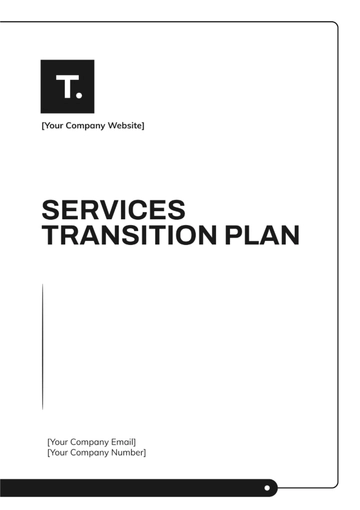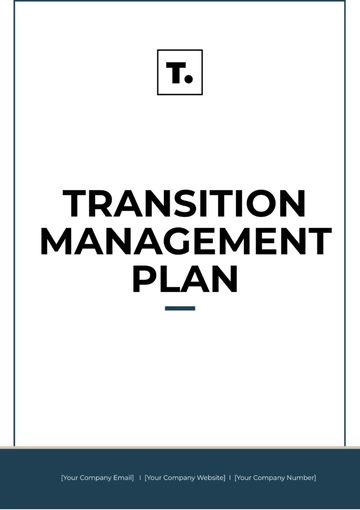Free Agriculture Organic Transition Plan
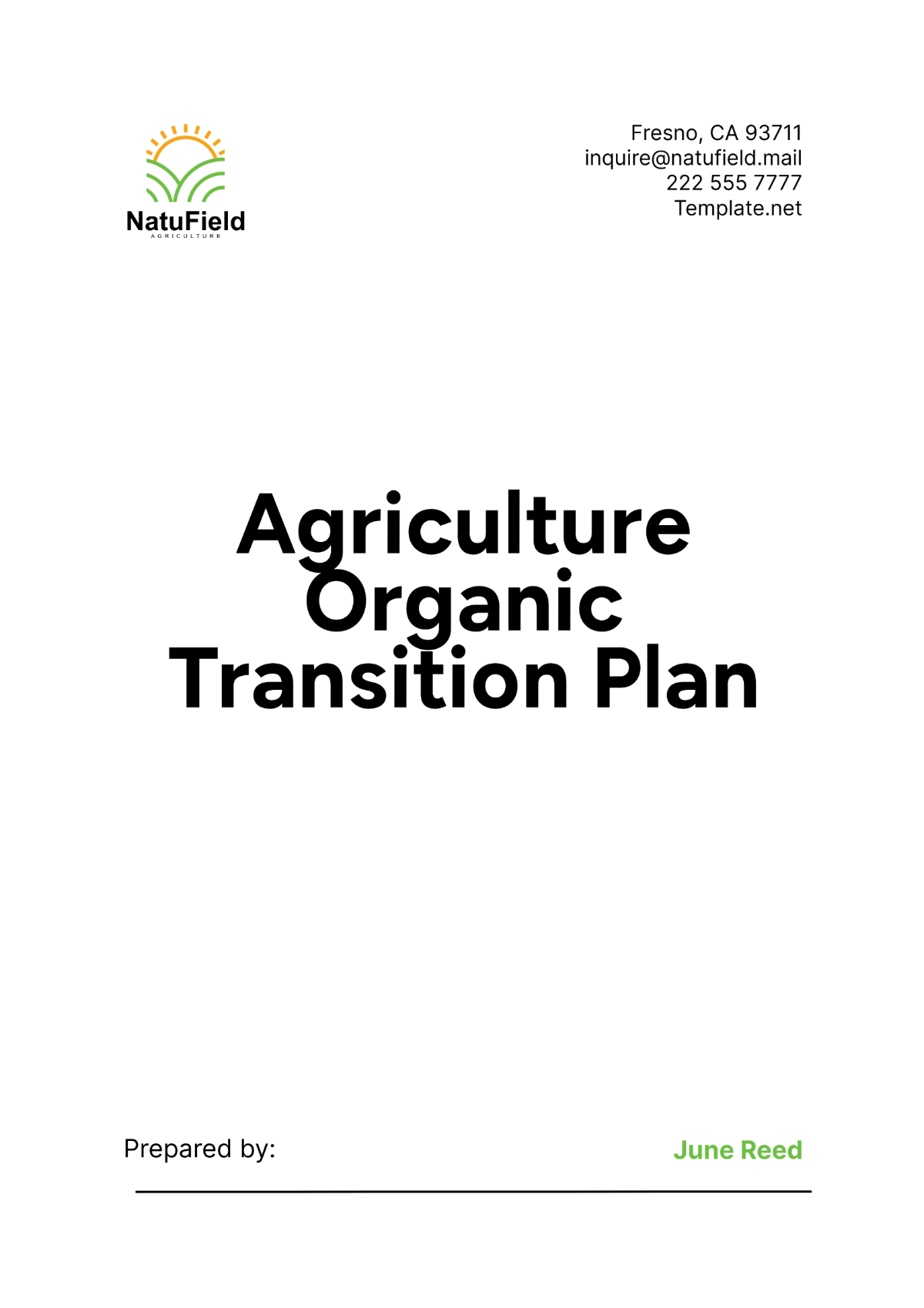
I. Introduction
The Agriculture Organic Transition Plan for [Your Company Name] is designed to provide a detailed and strategic approach for transitioning from conventional farming practices to certified organic agriculture. This plan outlines the essential steps, methodologies, and best practices required for a successful conversion to organic farming. By following this comprehensive guide, we aim to achieve organic certification, improve environmental sustainability, and enhance the long-term health of our land and crops. This introduction sets forth our commitment to a responsible and effective transition process, ensuring that all aspects of our farming operations align with organic standards and practices.
Scope
This transition plan applies to all agricultural activities and operations within [Your Company Name]. The plan covers land management, crop production, soil health, pest management, and compliance with organic certification requirements.
II. Company Information
In this section, we provide essential details about [Your Company Name] to give context to our Agriculture Organic Transition Plan. Here, you will find our contact information, including our address, email, phone number, and website. This section serves as a reference for stakeholders, partners, and regulatory bodies to connect with us as we embark on our journey toward organic farming certification and sustainable agricultural practices.
Company Name | [Your Company Name] |
|---|---|
Address | [Your Company Address] |
[Your Company Email] | |
Phone Number | [Your Company Number] |
Website | [Your Company Website] |
Social Media | [Your Company Social Media] |
III. Transition Phases
The “Transition Phases” section outlines the structured approach [Your Company Name] will follow to move from conventional to certified organic farming. This section details each phase of the transition process, from the initial assessment of current practices to the final steps of certification. By breaking down the transition into manageable phases—Initial Assessment, Planning and Preparation, Implementation, and Certification—this section provides a clear roadmap for achieving our organic farming goals and ensuring a successful and compliant transition to organic agriculture.
Phase 1: Initial Assessment
In the Initial Assessment phase, we will conduct a comprehensive evaluation of our current farming practices and resources. This foundational step is crucial for identifying necessary improvements and establishing a baseline for the transition. Key activities include:
Conduct soil tests
Review current pest control practices
Evaluate crop rotation schedules
Assess water management strategies
Phase 2: Planning and Preparation
The Planning and Preparation phase focuses on developing a detailed strategy for transitioning to organic farming. This phase involves creating a structured plan, sourcing organic inputs, and setting up essential systems to support organic practices. Key activities include:
Develop an organic system plan (OSP)
Identify organic seed and plant sources
Plan for crop rotations and cover crops
Implement soil fertility and pest management programs
Create record-keeping systems to track organic practices
Phase 3: Implementation
During the Implementation phase, we will put our planning into action and begin applying organic farming methods. This phase involves transitioning fields, applying organic inputs, and monitoring progress to ensure we adhere to organic standards. Key activities include:
Transition fields to organic methods
Apply organic fertilizers and approved inputs
Monitor crop progress and adjust as needed
Maintain detailed records of all organic practices
Phase 4: Certification
In the Certification phase, we will complete the final steps to achieve organic certification. This phase includes preparing for inspection, addressing any compliance issues, and officially obtaining organic certification. Key activities include:
Prepare and submit the Organic System Plan (OSP)
Undergo inspection by a certifying agent
Address any non-compliance issues identified
Receive organic certification
IV. Resources and Support
Successfully transitioning from conventional to organic farming requires access to a variety of resources and support services. Below, we outline key resources and opportunities available to [Your Company Name] to facilitate a smooth and effective transition process.
Organic Farming Workshops and Training Courses
Participating in organic farming workshops and training courses is essential for gaining practical knowledge and hands-on experience in organic practices. These educational opportunities are offered by local agricultural extension services, universities, and organic farming associations. Workshops and courses cover topics such as organic soil management, pest control techniques, and crop rotation strategies. By attending these events, you can stay updated on the latest organic farming methods and best practices. Look for programs offered by institutions like [University Extension Programs] or organizations like [Organic Farming Research Foundation (OFRF)].
Guidelines from the USDA National Organic Program (NOP)
The USDA National Organic Program (NOP) provides comprehensive guidelines and regulations for organic farming. These guidelines are crucial for understanding the requirements for organic certification, including permissible inputs, organic system plans, and certification procedures. The NOP’s website offers a wealth of resources, including the Organic Foods Production Act (OFPA) and NOP regulations. Access these documents and resources at [USDA NOP Website] to ensure your practices align with federal organic standards.
Consultation with Organic Farming Experts
Engaging with organic farming experts can provide valuable insights and tailored advice for your transition. These experts include certified organic consultants, agronomists, and experienced organic farmers. They can offer personalized guidance on developing your Organic System Plan (OSP), selecting organic inputs, and troubleshooting challenges. Reach out to professionals through organizations such as [Organic Trade Association (OTA)] or local [Organic Farming Consultants].
Financial Assistance Programs for Organic Transition
Financial assistance is available to support the costs associated with transitioning to organic farming. Programs such as the USDA’s Environmental Quality Incentives Program (EQIP) and the Organic Certification Cost Share Program provide funding for various transition expenses, including soil testing, organic inputs, and certification fees. Explore these programs through [USDA Financial Assistance Programs] to identify funding opportunities that can help offset the costs of your transition.
By leveraging these resources and support services, [Your Company Name] can effectively navigate the transition to organic farming and achieve long-term success.
V. Monitoring and Evaluation
Continuous monitoring and evaluation are critical to ensure the effectiveness of organic practices and compliance with certification standards.
Regular soil testing and analysis
Continuous pest and disease monitoring
Annual review of crop yields and quality
Evaluation of records and documentation
VI. Conclusion
Transitioning to organic farming represents a substantial and transformative commitment for [Your Company Name]. This journey is more than just a shift in farming methods; it embodies our dedication to environmental sustainability, the health of our community, and the future of agriculture. Through the steps outlined in this Agriculture Organic Transition Plan, we are embarking on a path that not only seeks to meet the stringent requirements for organic certification but also strives to set a standard for responsible and effective farming practices. By focusing on rigorous planning, thorough implementation, and continuous evaluation, we are laying the groundwork for a successful transition that aligns with our values and long-term goals.
Our commitment to this transition is driven by the belief that organic farming offers numerous benefits, including improved soil health, reduced environmental impact, and the promotion of biodiversity. This plan serves as a comprehensive guide to navigate the complexities of the transition process, from initial assessment through certification. As we move forward, we will remain dedicated to upholding the principles of organic agriculture and fostering a farming approach that supports a healthier planet and community. We are excited about the opportunities this transition presents and are confident that, with careful execution of this plan, [Your Company Name] will achieve its organic farming goals and contribute positively to the future of agriculture.
- 100% Customizable, free editor
- Access 1 Million+ Templates, photo’s & graphics
- Download or share as a template
- Click and replace photos, graphics, text, backgrounds
- Resize, crop, AI write & more
- Access advanced editor
Navigate your farm's shift to organic practices seamlessly with the Agriculture Organic Transition Plan Template from Template.net. This editable and customizable template is designed to guide you through the transition, ensuring compliance with organic standards and best practices. Editable in our Ai Editor Tool, it allows you to create a detailed and tailored plan to achieve a successful organic certification.
You may also like
- Finance Plan
- Construction Plan
- Sales Plan
- Development Plan
- Career Plan
- Budget Plan
- HR Plan
- Education Plan
- Transition Plan
- Work Plan
- Training Plan
- Communication Plan
- Operation Plan
- Health And Safety Plan
- Strategy Plan
- Professional Development Plan
- Advertising Plan
- Risk Management Plan
- Restaurant Plan
- School Plan
- Nursing Home Patient Care Plan
- Nursing Care Plan
- Plan Event
- Startup Plan
- Social Media Plan
- Staffing Plan
- Annual Plan
- Content Plan
- Payment Plan
- Implementation Plan
- Hotel Plan
- Workout Plan
- Accounting Plan
- Campaign Plan
- Essay Plan
- 30 60 90 Day Plan
- Research Plan
- Recruitment Plan
- 90 Day Plan
- Quarterly Plan
- Emergency Plan
- 5 Year Plan
- Gym Plan
- Personal Plan
- IT and Software Plan
- Treatment Plan
- Real Estate Plan
- Law Firm Plan
- Healthcare Plan
- Improvement Plan
- Media Plan
- 5 Year Business Plan
- Learning Plan
- Marketing Campaign Plan
- Travel Agency Plan
- Cleaning Services Plan
- Interior Design Plan
- Performance Plan
- PR Plan
- Birth Plan
- Life Plan
- SEO Plan
- Disaster Recovery Plan
- Continuity Plan
- Launch Plan
- Legal Plan
- Behavior Plan
- Performance Improvement Plan
- Salon Plan
- Security Plan
- Security Management Plan
- Employee Development Plan
- Quality Plan
- Service Improvement Plan
- Growth Plan
- Incident Response Plan
- Basketball Plan
- Emergency Action Plan
- Product Launch Plan
- Spa Plan
- Employee Training Plan
- Data Analysis Plan
- Employee Action Plan
- Territory Plan
- Audit Plan
- Classroom Plan
- Activity Plan
- Parenting Plan
- Care Plan
- Project Execution Plan
- Exercise Plan
- Internship Plan
- Software Development Plan
- Continuous Improvement Plan
- Leave Plan
- 90 Day Sales Plan
- Advertising Agency Plan
- Employee Transition Plan
- Smart Action Plan
- Workplace Safety Plan
- Behavior Change Plan
- Contingency Plan
- Continuity of Operations Plan
- Health Plan
- Quality Control Plan
- Self Plan
- Sports Development Plan
- Change Management Plan
- Ecommerce Plan
- Personal Financial Plan
- Process Improvement Plan
- 30-60-90 Day Sales Plan
- Crisis Management Plan
- Engagement Plan
- Execution Plan
- Pandemic Plan
- Quality Assurance Plan
- Service Continuity Plan
- Agile Project Plan
- Fundraising Plan
- Job Transition Plan
- Asset Maintenance Plan
- Maintenance Plan
- Software Test Plan
- Staff Training and Development Plan
- 3 Year Plan
- Brand Activation Plan
- Release Plan
- Resource Plan
- Risk Mitigation Plan
- Teacher Plan
- 30 60 90 Day Plan for New Manager
- Food Safety Plan
- Food Truck Plan
- Hiring Plan
- Quality Management Plan
- Wellness Plan
- Behavior Intervention Plan
- Bonus Plan
- Investment Plan
- Maternity Leave Plan
- Pandemic Response Plan
- Succession Planning
- Coaching Plan
- Configuration Management Plan
- Remote Work Plan
- Self Care Plan
- Teaching Plan
- 100-Day Plan
- HACCP Plan
- Student Plan
- Sustainability Plan
- 30 60 90 Day Plan for Interview
- Access Plan
- Site Specific Safety Plan

